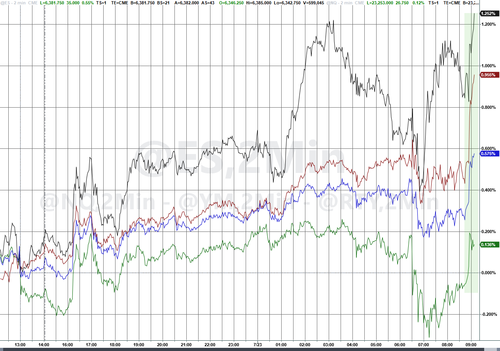Why Japan’s Shock Nationalist Turn Concerns the World

A major political realignment is taking place in the far east. Japan’s nationalist and populist voices are stepping into the spotlight after being confined to the sidelines for years — and its impact is reaching much further than its own borders.
Let’s not lose touch…Your Government and Big Tech are actively trying to censor the information reported by The Exposé to serve their own needs. Subscribe now to make sure you receive the latest uncensored news in your inbox…
What’s Going On in Japan?
Japan’s Liberal Democratic Party (LDP), led by Prime Minister Fumio Kishida, has just suffered a major electoral defeat. For the first time in a decade, the ruling coalition lost its grip on the upper house of parliament. But the bigger story is about who is filling the void.
The Sanseito party, a once-fringe nationalist movement, has surged in popularity and captured the attention of voters who find themselves fed up with the status quo. Starting off as a YouTube campaign during 2020, and focusing on grassroots efforts to build from the ground upwards, Sanseito has now secured over 20% of the vote in several key districts. Centred on themes of national pride, the party advocates for constitutional reform, a tougher stance on national defence, stronger economic independence, and a greater emphasis on preserving the country’s disappearing culture.
It’s no secret that Japan has been on poor economic form in the past few decades — we published a piece about this recently — and with almost non-existent growth, a shrinking population, and the general perception that cultural values are being eroded year by year, more people feel alienated from their country’s future. Sanseito’s rise reflects a growing number of voters looking not just for a shift in policy, but in foundational principles too.
Why Sanseito’s Message is Gaining Momentum
The party’s critics were quick to label Sanseito as a “far-right” movement, especially in international news. But for many of its supporters, this simplified characterisation misses the nuance. To them, it isn’t radical — it’s rational. Those backing Sanseito feel relief in finally having their voices heard regarding how quickly their country appears to be changing without anyone’s consent.
With this move, Japan looks to be joining a lengthening list of countries concerned about immigration, foreign ownership, and their own shrinking influence on the world stage. Supporters say that traditional parties have left the ordinary person’s questions on these topics unanswered, while underdelivering on their own key goals — promises of progress and prosperity have dwindled into soaring living costs, economic stagnation, and a lacking cultural identity.
Sanseito’s success is — at least in part — due to its ability to communicate outside the traditional boundaries of legacy media. Effectively utilising social media platforms like YouTube has allowed the party to access an audience that had grown fed up with, and felt ignored by, the usual voices and their outlets. Policy alone isn’t enough to cause a shift; they must actually be heard. Increasingly, voters appear willing to listen to voices that reflect their anxieties and ambitions rather than dismiss them.
Japan Isn’t An Anomaly – It’s Happening Everywhere
This political turn is not happening in isolation. Around the world, a similar undercurrent appears to be quietly reshaping the electoral landscape. From Germany’s AfD to Argentina’s Javier Milei, the rise of populist-nationalist politics is moving from the fringes to the front row. In France, Marine Le Pen continues to grow in influence, and Geert Wilders is finding new momentum in the Netherlands too.
These movements often seem fuelled by frustration, but defy easy categorisation. There are themes of self-determination, cultural coherence, and national pride behind them too. They’re not necessarily calls for revolution, but restoration.
Japan’s shift is therefore timely and telling. It’s a country that has long been defined by consensus and moderation, and the appearance of an unapologetically nationalist party amidst the perceived greyness of its political future may be signalling something deeper. The quiet nationalist majority may just be getting a little louder.
Beyond Japan: What It Means For the World
With this shift in momentum could come a reshaping of Japan’s role in the region and the world as a whole. Should the move to revise the postwar constitution come to fruition, there could be an expansion of the military, an increase in defence spending, and a rebalancing of the country’s alliance with western powers. It’s easy to imagine further ripple effects across East Asia, anywhere from North Korea to the Taiwan Strait.
Domestically talking, debates are expected to intensify around foreign land ownership, immigration, and education. Policies once considered unchangeable may now be altered, and as Japan may be heading towards a more self-directed posture, how it proceeds may well act as a blueprint for other democracies navigating similar tensions.
For critics, this is another concerning shift toward nationalism, to add to a growing list of countries appearing to be changing course. For supporters, it now appears a necessity to express national self-respect. Whatever happens next, the status quo has well and truly been disrupted.
Final Thought
Sanseito’s emergence is a sign of something deeper than just a political upset. It signals a recalibration of identities, priorities, and how people expect to be represented. As with many movements like this, the voices that feel they have been suppressed the longest, become the loudest.
Japan’s shift clearly represents that the people still believe in cultural pride, national interest, and self-determination, and not just as fringe values. Just as we’re seeing happen in other major countries around the globe, these values are finding their way back to the mainstream.
Whether this becomes a model for others, or a unique chapter in Japan’s political story, remains to be seen. But, undeniably, a shift is underway, and more countries may yet follow suit.
Join the Conversation
What do you think about this kind of political shift? Are you experiencing anything similar in your country? If not, are you glad, or disappointed, that you aren’t seeing the same changes? Let us know in the comments below.
The Expose Urgently Needs Your Help…
Can you please help to keep the lights on with The Expose’s honest, reliable, powerful and truthful journalism?
Your Government & Big Tech organisations
try to silence & shut down The Expose.
So we need your help to ensure
we can continue to bring you the
facts the mainstream refuses to.
The government does not fund us
to publish lies and propaganda on their
behalf like the Mainstream Media.
Instead, we rely solely on your support. So
please support us in our efforts to bring
you honest, reliable, investigative journalism
today. It’s secure, quick and easy.
Please choose your preferred method below to show your support.
Categories: Breaking News, World News
Tagged as: argentina, change, changes, france, germany, global, japan, nationalist, netherlands, news, politics, populist, right, right-wing, wing















